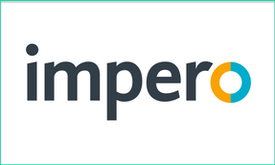cyberbullying, radicalization and self-harm

“Our mission is to help schools keep students safe online,” said Sam Pemberton, CEO of Impero. “Detecting potential concerns is just the first step. That’s why we also partner with groups like the Educator’s School Safety Network, Hey U.G.L.Y., and SafeBAE which offer advice on how to address a situation once it is detected. Examples include starting a difficult conversation with students about race, radicalization or religion, or what a teacher can do if they discover potential signs that a student has an eating disorder. The Online Safety Handbook consolidates both the software guidance and these partner resources all in one place, providing schools with a well-rounded approach to addressing safety concerns among students.”
The handbook includes advice from the following partners:
- Eating disorders – ANAD (the National Association of Anorexia Nervosa and Associated Disorders Inc.)
- Radicalization – Victvs
- Sexting – Professionals Online Safety Helpline
- Self-harm – Harmless
- Bullying – Hey U.G.L.Y.
- Online grooming and sexual assault – SafeBAE (Safe Before Anyone Else)
- Online pornography – Cybertrauma specialist Catherine Knibbs
- Weapons and violence – ESSN (Educator’s School Safety Network)
- Race and religious hate – HOPE Not Hate
- Suicide – Harmless
- Digital citizenship – Digital Citizenship Institute
- Whole School Approach – EPIK
- Incident response - iKeepsafe
The handbook also contains resources and templates for schools on acceptable use policies, letters for parents, incident response flow charts, monitoring posters, and more.
The Online Safety Handbook is part of Impero’s ongoing work to support schools in keeping students safe online and promoting good digital citizenship. Impero launched a $2.5 million “Best Technology for Schools” grant program in November, 2016 which allowed many schools to gain access to this state-of-the-art technology at a discounted rate. The company also released a white paper, co-authored with the Digital Citizenship Institute, in October, 2016, at the Digital Citizenship Summit in San Francisco, which offers insight and best practices when teaching digital citizenship in schools.
In addition to the monitoring software, Impero Software also provides classroom management tools that teachers can use to engage students in the digital classroom, keeping them on task and focused, and in turn improving their learning outcomes. For example, teachers can share their screens, send and share files with students, take over or lock students’ computers, create exams and tests, assign tasks, send direct messages to students, or draw students’ attention back to the teacher. Schools can also use Impero Software for a wide array of administrative IT tasks such as controlling passwords, managing the use of printers, or setting computers to power on or off at certain times.
About Impero Software
Impero Software offers remote monitoring and management software, relied upon by education establishments around the world. Founded in 2002, it is accessed by over 1.5 million devices in over 90 countries. In the UK it has a 40 percent market share of UK high schools and is used by over 500 U.S. districts.
Impero’s cutting edge software consolidates a range of powerful classroom, network and device management features enabling schools and colleges to reduce costs and improve both staff and student productivity. Its online safety functionality uses keyword detection technology to help schools safeguard students online.
For more information visit: www.imperosoftware.com












